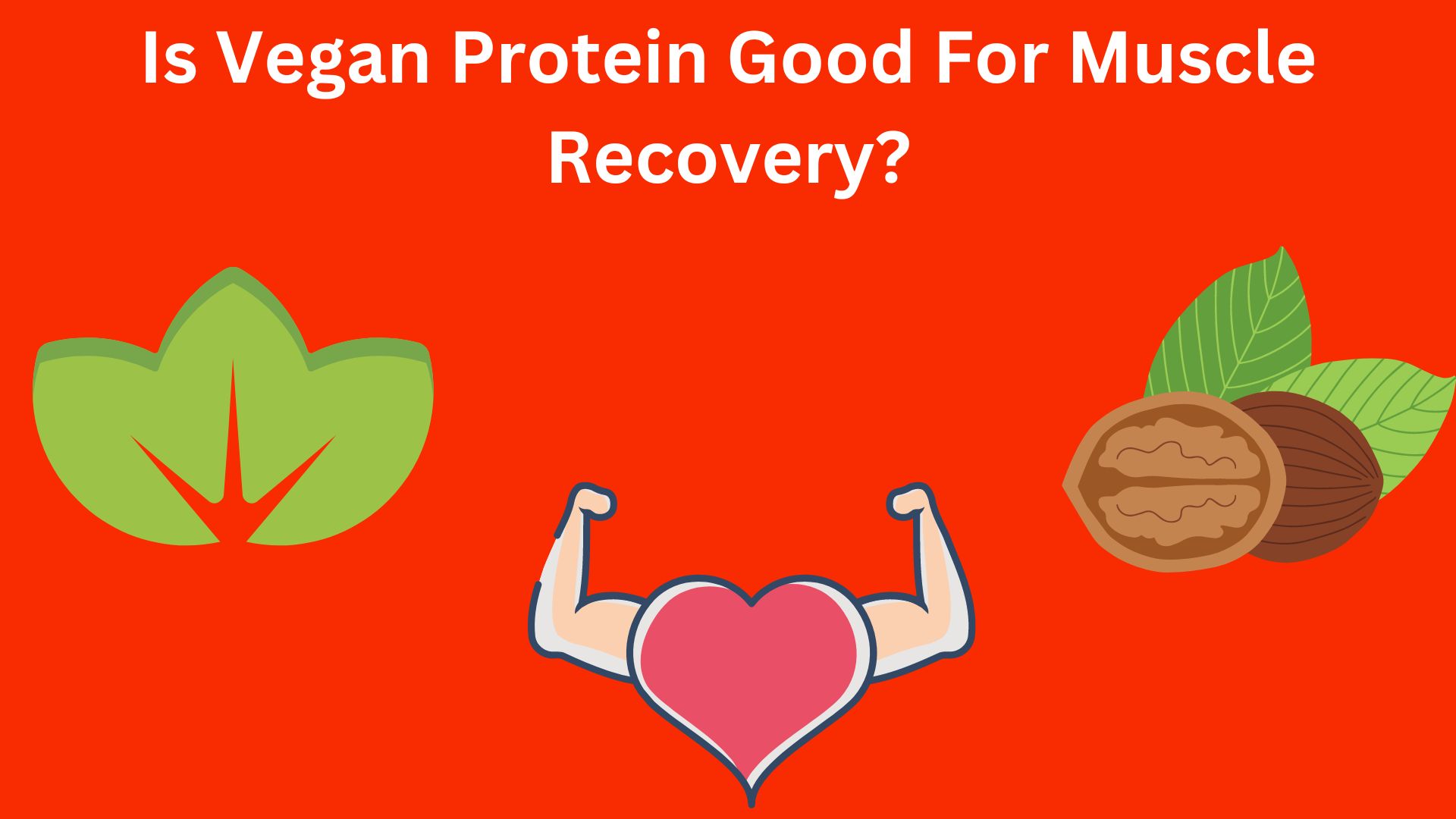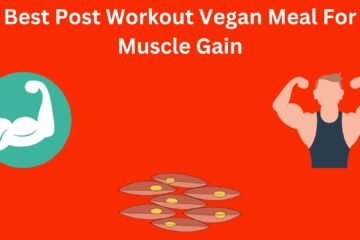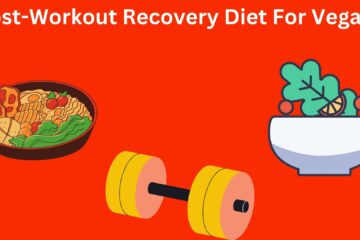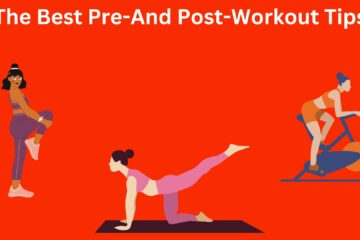Welcome to our blog about vegan protein and its ability to aid in muscle recovery! Protein is a necessary ingredient for the human body, and it plays an important role in muscle regeneration and repair following physical exertion. Finding high-quality protein sources might be difficult for those who follow a vegan diet.
In this article, we’ll look at the benefits of vegan protein for muscle repair as well as some of the greatest plant-based protein sources for athletes and active people. This blog will give you essential information on how to maximize your protein consumption for optimal muscle repair, whether you are a seasoned vegan or just starting to examine plant-based options.
10 Benefits Of Vegan Protein For Muscle Recovery
- Vegan protein is easily digestible and free of animal-based additives or allergens, making it ideal for people who have dietary limitations or sensitivities.
- Vegan protein sources are high in antioxidants and phytochemicals, which can aid in inflammation reduction and muscle rehabilitation.
- Because plant-based protein sources are often low in fat and calories, they are an ideal alternative for those attempting to maintain or lose weight while recovering from physical exercise.
- Vegan protein sources are frequently high in critical amino acids that are required for muscle repair and growth.
- A diet high in plant-based protein has been linked to a variety of other health benefits, including a lower risk of chronic diseases like heart disease, diabetes, and some malignancies.
- When compared to animal-based protein sources, vegan protein sources are often more environmentally sustainable because they require less water, land, and energy to manufacture.
- Vegan protein sources, which are high in minerals like B vitamins and magnesium, may assist to minimize muscular pain and weariness after physical activity.
- Many vegan protein sources are also high in fiber, which can aid in digestion and reduce constipation, which is a common side effect of high-protein diets.
- Vegan protein sources may aid to promote bone health since they are high in calcium and other minerals needed for bone health.
- A diet high in plant-based protein may aid to increase athletic performance by providing the nutrients needed for muscle rehabilitation and repair.
5 Best Plant-Based Sources Of Protein For Vegan Athletes And Active Individuals
1. Legumes
Vegan protein can be found in legumes such as beans, lentils, and peas. They also include a lot of fiber, iron, and other minerals.
2. Soy
Protein-rich soy products such as tofu, tempeh, and edamame can be easily included in a number of recipes.
3. Nuts and seeds
Almonds, peanuts, and chia seeds are high in protein and healthy fats, making them excellent snacks for athletes and energetic people.
4. Grains
Protein-rich grains like quinoa, amaranth, and teff can be used as a base for salads, bowls, or as a side dish.
5. Protein powders
Protein powders derived from plant-based sources such as peas, brown rice, and hemp can be a convenient way to increase protein intake, particularly after exercise.
Frequently Asked Questions On Whether Vegan Protein Is Good For Muscle Recovery
Plant-based protein sources have been found in studies to be just as effective as animal protein for muscle rehabilitation and repair. However, vegans must ensure that they consume a range of protein sources in order to obtain all of the needed amino acids.
Yes, it is possible to gain muscle while following a vegan diet. Vegan athletes and active people may need to increase their protein intake and use high-protein plant-based sources to help muscle recovery and growth.
No, not always. Both vegans and non-vegans should consume the same amount of protein each day. Vegans, on the other hand, may need to be more conscious of their protein intake, as plant-based protein sources are lower in protein than animal-based sources.
Yes, by consuming a mix of plant-based protein sources, it is possible to receive enough protein on a vegan diet. However, vegans must be cautious of their protein intake and ensure that they are reaching their daily protein requirements.
Vegan protein supplements, especially after a workout, can be a handy way to increase protein intake. However, it is critical to select a high-quality supplement and utilize it as part of a well-balanced diet.
Conclusion
It’s no secret that protein is essential for muscle regeneration and repair following physical exertion. Finding high-quality protein sources might be difficult for individuals on a vegan diet. Recent research, however, has shown that plant-based protein sources can be equally as effective as animal protein in terms of muscle rehabilitation and growth. Vegan protein is easily digestible and free of animal-based chemicals and allergies, making it ideal for people who have dietary limitations or sensitivities.
Vegan protein sources, in addition to being easily digestible, are high in antioxidants and other phytochemicals that can aid to reduce inflammation and enhance muscle recovery. Plant-based protein sources are low in fat and calories, making them a good alternative for anyone trying to maintain or decrease weight while recuperating from physical exercise. Vegan proteins are frequently high in critical amino acids, which are required for muscle repair and growth.
A diet high in plant-based protein has also been demonstrated to offer a variety of other health benefits. A vegan protein-rich diet has been associated with a lower risk of chronic diseases such as heart disease, diabetes, and some malignancies, in addition to promoting muscle regeneration. Vegan protein sources are also more environmentally friendly than animal-based protein sources since they require less water, land, and energy to produce.
There are numerous plant-based protein sources that are acceptable for vegan athletes and active people. Vegan protein can be found in legumes such as beans, lentils, and peas. Protein-rich soy products such as tofu, tempeh, and edamame can also be easily included in a number of meals. Almonds, peanuts, and chia seeds are high in protein and healthy fats, making them excellent snacks for athletes and energetic people. Grains with high protein content, such as quinoa, amaranth, and teff, can be used as a base for salads, bowls, or as a side dish. Protein powders derived from plant-based sources such as peas, brown rice, and hemp can be an easy way to increase protein intake, particularly after a workout.
Finally, vegan protein can be an effective and nutrient-dense option for muscle recovery. Vegans can improve their muscle health and athletic performance by eating a range of plant-based protein sources and monitoring their protein intake. While getting adequate protein on a vegan diet may present some issues, it is certainly doable with appropriate planning and nutrition understanding. There are lots of delicious nutritional options to select from if you are a vegan athlete trying to maximize your muscle recovery or simply want to integrate more plant-based protein into your diet.




[…] products such as meat, dairy, and eggs are commonly regarded as the “gold standard” for muscle-building protein, with the appropriate balance of nutrients and calories, it is feasible to gain muscle on a vegan […]